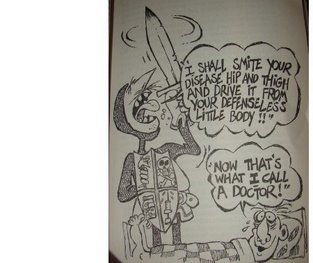What
SS: One of the SSRI antidepressants that's widely believed to be a wonder drug is Prozac. Yet your research found that the Food and Drug Administration (FDA) received more adverse reports about Prozac than any other drug. What sort of ill effects were people reporting?
First of all, with Prozac and the SSRIs that followed, their level of efficacy was always of a very minor sort. In all the clinical trials of the antidepressants, roughly 41 percent of the patients got better in the short term versus 31 percent of the patients on placebo. Now just one other caveat on that. If you use an active placebo in these trials -- an active placebo causes a physiologic change with no benefit, like a dry mouth -- any difference in outcome between the antidepressant and placebo virtually disappears.Click on What for more
SS: Weren't the early drug tests of Prozac so unpromising that they had to manipulate test results to get FDA approval at all?
RW: What happened with Prozac is a fascinating story. Right from the beginning, they noticed only very marginal efficacy over placebo; and they noticed that they had some problems with suicide. There were increased suicidal responses compared to placebo. In other words, the drugs was agitating people and making people suicidal who hadn't been suicidal before. They were getting manic responses in people who hadn't been manic before. They were getting psychotic episodes in people who hadn't been psychotic before. So you were seeing these very problematic side effects even at the same time that you were seeing very modest efficacy, if any, over placebo in ameliorating depression.


No comments:
Post a Comment